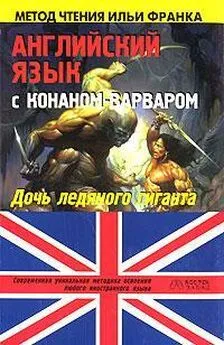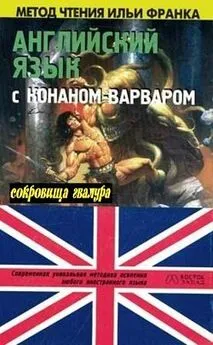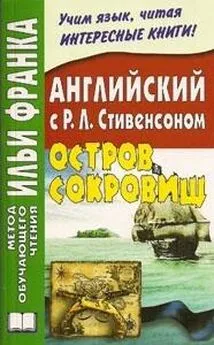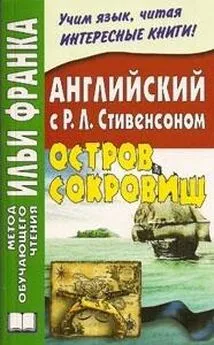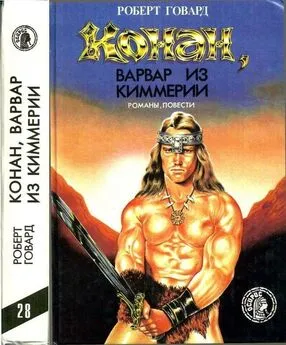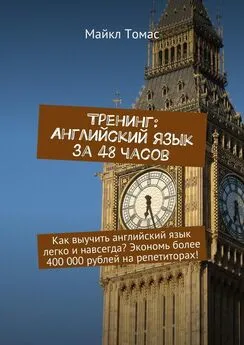Роберт Говард - Английский язык с Конаном-варваром
- Название:Английский язык с Конаном-варваром
- Автор:
- Жанр:
- Издательство:АСТ, Восток-Запад
- Год:2007
- Город:Москва
- ISBN:5-17-042032-3, 5-478-00503-7
- Рейтинг:
- Избранное:Добавить в избранное
-
Отзывы:
-
Ваша оценка:
Роберт Говард - Английский язык с Конаном-варваром краткое содержание
В книге предлагается произведения Роберта Е. Говарда, адаптированные (без упрощения текста оригинала) по методу Ильи Франка. Уникальность метода заключается в том, что запоминание слов и выражений происходит за счет их повторяемости, без заучивания и необходимости использовать словарь. Пособие способствует эффективному освоению языка, может служить дополнением к учебной программе. Предназначено для студентов, для изучающих английский язык самостоятельно, а также для всех интересующихся английской культурой.
Метод чтения Ильи Франка
Содержание:
Дочь ледяного великана
Проклятие монолита
Замок ужаса
За Черной рекой
Тени Замбулы
Английский язык с Конаном-варваром - читать онлайн бесплатно полную версию (весь текст целиком)
Интервал:
Закладка:
peril [ˈperɪl], earnestness [ˈə: nɪstnɪs], wiry [ˈwaɪərɪ]
"Peril hides in the house of Aram Baksh!"
The speaker's voice quivered with earnestness and his lean, black-nailed fingers clawed at Conan's mightily-muscled arm as he croaked his warning. He was a wiry, sunburnt man with a straggling black beard, and his ragged garments proclaimed him a nomad. He looked smaller and meaner than ever in contrast to the giant Cimmerian with his black brows, broad chest, and powerful limbs. They stood in a corner of the Sword Makers' Bazaar, and on either side of them flowed past the many-tongued, many-colored stream of the Zamboulan streets, which are exotic, hybrid, flamboyant, and clamorous.
Conan pulled his eyes back from following a bold-eyed, red-lipped Ghanara whose short skirt bared her brown thigh at each insolent step (Конан оторвал /свои/ глаза от слежения = провожавшие взглядом красногубую Ганарку с дерзким взглядом: «дерзко-взглядная», чья короткая юбка обнажала ее коричневое бедро при каждом кичливом шаге), and frowned down at his importunate companion (и нахмурился = хмуро посмотрел на своего назойливого собеседника).
"What do you mean by peril?" he demanded (что ты подразумеваешь под опасностью? — спросил он).
The desert man glanced furtively over his shoulder before replying, and lowered his voice (человек пустыни посмотрел украдкой через /свое/ плечо, прежде чем ответить, и понизил /свой/ голос).
whose [hu: z], frown [fraun], mean [mi: n]
Conan pulled his eyes back from following a bold-eyed, red-lipped Ghanara whose short skirt bared her brown thigh at each insolent step, and frowned down at his importunate companion.
"What do you mean by peril?" he demanded.
The desert man glanced furtively over his shoulder before replying, and lowered his voice.
"Who can say (кто может сказать)? But desert men and travelers have slept in the house of Aram Baksh and never been seen or heard of again (но люди пустыни и путники спали в доме Арама Бакша, и их никогда больше не видели и не слышали о них: «никогда были видены и слышаны о снова»; to see — видеть; to hear — слышать ). What became of them (что стало из = с ними)? He swore they rose and went their way — and it is true that no citizen of the city has ever disappeared from his house (он клялся, /что/ они встали и ушли своей дорогой — и /это/ правда, что ни один горожанин из города никогда /не/ исчезал из его дома). But no one saw the travelers again (но никто /не/ видел странников снова), and men say that goods and equipment recognized as theirs have been seen in the bazaars (и люди говорят, что товары и снаряжение были увидены = видели на базарах). If Aram did not sell them, after doing away with their owners, how came they there (если Арам не продал их, покончив с их владельцами, как они попали туда; to do away with — покончить с; to come — придти, попасть )?"
who [hu: ], house [haus], equipment [ɪˈkwɪpmənt]
"Who can say? But desert men and travelers have slept in the house of Aram Baksh and never been seen or heard of again. What became of them? He swore they rose and went their way — and it is true that no citizen of the city has ever disappeared from his house. But no one saw the travelers again, and men say that goods and equipment recognized as theirs have been seen in the bazaars. If Aram did not sell them, after doing away with their owners, how came they there?"
"I have no goods," growled the Cimmerian (я имею никаких товаров = у меня нет товара , — прорычал киммериец), touching the shagreen-bound hilt of the broadsword that hung at his hip (касаясь обмотанной шагреневой кожей рукоятки палаша, который висел на его бедре). "I have even sold my horse (я продал даже мою лошадь; to sell — продавать )."
"But it is not always rich strangers who vanish by night from the house of Aram Baksh!" chattered the Zuagir (но /это/ не всегда /только/ богатые чужеземцы, /которые/ исчезают ночью из дома Арама Бакша! — застрекотал зуагир). "Nay, poor desert men have slept there — because his score is less than that of the other taverns — and have been seen no more (нет, бедные люди пустыни спали там — потому что его счет меньше, чем таковой = счет в других тавернах — и их больше не видели). Once a chief of the Zuagirs whose son had thus vanished complained to the satrap, Jungir Khan (однажды вождь зуагиров, чей сын исчез таким образом, пожаловался сатрапу, Джунгир Хану), who ordered the house searched by soldiers (который приказал обыскать дом солдатам: «приказал дом обысканный солдатами»)."
growl [ɡraul], even [i: vn], chief [ʧi: f]
"I have no goods," growled the Cimmerian, touching the shagreen-bound hilt of the broadsword that hung at his hip. "I have even sold my horse."
"But it is not always rich strangers who vanish by night from the house of Aram Baksh!" chattered the Zuagir. "Nay, poor desert men have slept there — because his score is less than that of the other taverns — and have been seen no more. Once a chief of the Zuagirs whose son had thus vanished complained to the satrap, Jungir Khan, who ordered the house searched by soldiers."
"And they found a cellar full of corpses?" asked Conan in good-humored derision (и они нашли подвал, полный трупов? — спросил Конан с добродушной насмешкой).
"Nay! They found naught (нет, они /не/ нашли ничего)! And drove the chief from the city with threats and curses (и выгнали вождя из города с угрозами и проклятиями)! But" — he drew closer to Conan and shivered — "something else was found (но, — он придвинулся ближе к Конану и затрясся, — было найдено кое-что еще)! At the edge of the desert, beyond the houses, there is a clump of palm trees, and within that grove there is a pit (на краю пустыни за домами есть заросли пальм, и в той роще есть яма). And within that pit have been found human bones, charred and blackened (а в той яме были найдены = нашли человеческие кости, обугленные и почерневшие). Not once, but many times (не один раз, а много раз)!"
found [faund], naught [nɔ: t], bone [bəun]
"And they found a cellar full of corpses?" asked Conan in good-humored derision.
"Nay! They found naught! And drove the chief from the city with threats and curses! But" — he drew closer to Conan and shivered — "something else was found! At the edge of the desert, beyond the houses, there is a clump of palm trees, and within that grove there is a pit. And within that pit have been found human bones, charred and blackened. Not once, but many times!"
"Which proves what?" grunted the Cimmerian (которое доказывает что = и что это доказывает ? — пробурчал Конан).
"Aram Baksh is a demon (Арам Бакш — демон)! Nay, in this accursed city which Stygians built and which Hyrkanians rule (нет, в этом проклятом городе, который построили стигийцы, и которым правят гирканцы) — where white, brown, and black folk mingle together to produce hybrids of all unholy hues and breeds где белые, коричневые и черные народы смешиваются друг с другом, /чтобы/ плодить гибридов всех нечестивых / жутких оттенков и племен) — who can tell who is a man, and who is a demon in disguise (кто может сказать, кто — человек, а кто замаскированный демон)? Aram Baksh is a demon in the form of a man (Арам Бахш — демон в обличье человека)! At night he assumes his true guise and carries his guests off into the desert (ночью он принимает свой истинный вид и уносит своих постояльцев в пустыню; guise — внешний вид, наружность; вид, видимость; личина ), where his fellow demons from the waste meet in conclave (где его приятели-демоны из пустыни встречаются на сборище)."
prove [pru: v], brown [braun], folk [fəuk]
"Which proves what?" grunted the Cimmerian.
"Aram Baksh is a demon! Nay, in this accursed city which Stygians built and which Hyrkanians rule — where white, brown, and black folk mingle together to produce hybrids of all unholy hues and breeds — who can tell who is a man, and who is a demon in disguise? Aram Baksh is a demon in the form of a man! At night he assumes his true guise and carries his guests off into the desert, where his fellow demons from the waste meet in conclave."
"Why does he always carry off strangers?" asked Conan skeptically (почему он всегда уносит чужеземцев? — спросил Конан скептически).
"The people of the city would not suffer him to slay their people (люди города = жители города не потерпели бы его убивать их людей = чтобы он убивал их людей = их близких ), but they care nought for the strangers who fall into his hands (но им совершенно наплевать на чужеземцев: «они заботятся ничего для чужеземцев», которые попадают в его руки). Conan, you are of the West, and know not the secrets of this ancient land (Конан, ты с Запада, и не знаешь секретов этой древней земли). But, since the beginning of happenings, the demons of the desert have worshipped Yog, the Lord of the Empty Abodes (но с начала событий = сущего демоны пустыни поклоняются Йогу, Владыке Пустых Обиталищ), with fire — fire that devours human victims (с /помощью/ огня — огня, который пожирает человеческие жертвы).
always [ˈɔ: lwəz], people [pi: pl], secret [ˈsi: krɪt]
"Why does he always carry off strangers?" asked Conan skeptically.
"The people of the city would not suffer him to slay their people, but they care nought for the strangers who fall into his hands. Conan, you are of the West, and know not the secrets of this ancient land. But, since the beginning of happenings, the demons of the desert have worshipped Yog, the Lord of the Empty Abodes, with fire — fire that devours human victims.
Читать дальшеИнтервал:
Закладка:
